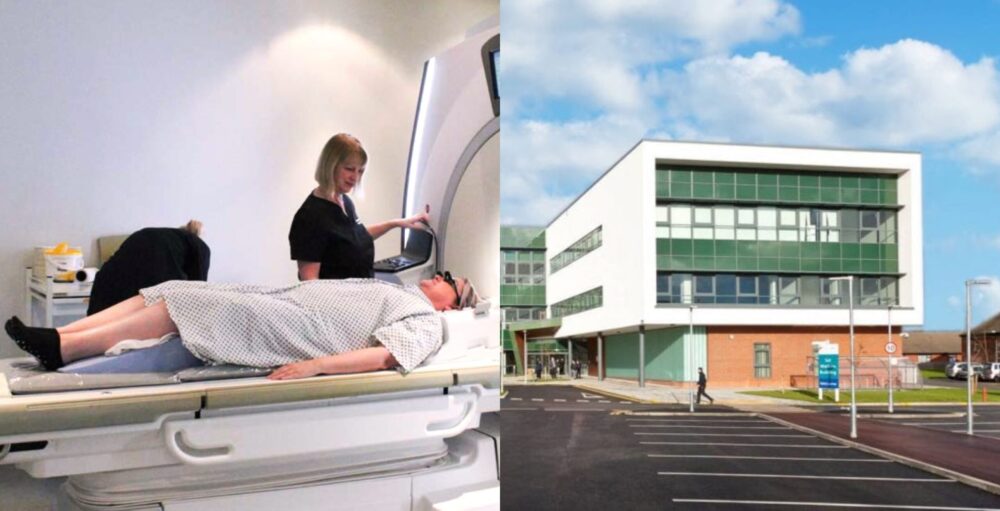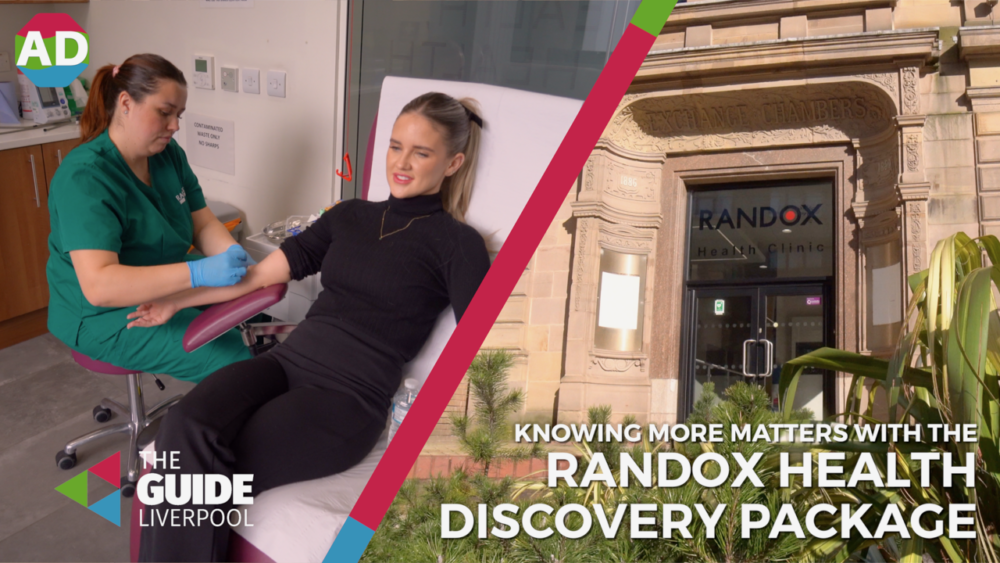
Health & Fitness
The NHS is offering routine preventative bowel cancer screenings to people with Lynch Syndrome
2 months ago

The NHS is offering routine preventative bowel cancer screening to thousands of people in England with a genetic condition that increases their chance of developing certain cancers.
This is a world-first move by the health service to help reduce cases and identify bowel cancers earlier when successful treatment and cure is more likely. As part of the NHS Bowel Screening Programme, people with Lynch syndrome are now invited for bowel surveillance every two years, where they are seen by a specialist team and assessed for a colonoscopy which checks for polyps and signs of bowel cancer.
Lynch syndrome is an inherited condition that increases the risk of certain cancers, including bowel, ovarian and pancreatic, but out of 100 people with Lynch syndrome, screening prevents between 40 and 60 people from getting bowel cancer.
Around 10,000 people in England are on the Lynch syndrome register and are being invited to join Lynch surveillance as part of the NHS bowel cancer screening programme, and with many more unknowingly living with the disease, thousands of extra cancers will potentially be diagnosed and treated earlier.
The routine colonoscopies will be offered at local bowel cancer screening centres, close to peoples’ homes making it more convenient for people to get tested.
The health service also has a dedicated genetic testing programme for the condition and now almost all people diagnosed with bowel and endometrial cancer receive the initial test to check for Lynch syndrome – 94% on average between 2021-2023 which is up from 47% in 2019.
A diagnosis for Lynch syndrome not only helps guide more personalised cancer treatment but enables their families and relatives to be offered testing too.
Around 1,100 bowel cancers are caused by Lynch syndrome each year in England – and it is thought the syndrome increases the lifetime risk of developing bowel cancer up to around 80%.
Steve Russell, national director of screening and vaccinations for the NHS, said:
“Our successful bowel cancer screening programme already helps identify thousands of cancers each year, and now thousands more people who have been diagnosed with Lynch syndrome will also be given regular colonoscopies to check for signs of cancer and to detect the disease earlier.
“Ensuring people who we know are at a greater risk of developing cancers get regular screening is key to diagnosing cancers at an earlier stage, and I’d encourage everyone invited to come forward and get their screening at a local centre near them.”
Dr Robert Logan, NHS England’s national speciality adviser for endoscopy and bowel screening, said:
“This is great news for patients with Lynch syndrome – not only has genetic testing for the condition increased massively in less than five years, but we are also ensuring that patients diagnosed with Lynch syndrome are then guaranteed to get the high quality surveillance colonoscopy they need from the national screening programme. This is the first time any country has been able to deliver such a comprehensive joined up approach to diagnosis and early intervention for one of the most common hereditable cancer syndromes.”
It is estimated that 1 in 400 people in England have Lynch syndrome (equivalent to around 175,000 people), but just 5% are aware they are living with the condition.
People with Lynch syndrome are more likely to develop multiple cancers and be diagnosed at a younger age. For example, bowel cancer is most common in those aged over 50 but in someone younger, it may be a sign of Lynch syndrome.
The NHS is now able to identify the condition through a simple blood test, which then goes through a regional genomic laboratory hub, is sequenced, and then sent back to the referring clinician.
Leeshon Yip, a mum from Knowsley was diagnosed with Lynch syndrome after finding out she had bowel cancer.
Leeshon was offered the test during her treatment through The Clatterbridge Cancer Centre in the Lilac Centre clinic at St Helens Hospital.
She said:
“Since I had the test and was told I had Lynch syndrome, a few things have fallen into place. My mum died of cancer at the age of 50 and my great aunt and my mum’s cousin had bowel cancer, so it is not a surprise there was something that was inherited.
“Knowing you are positive means you can be much more vigilant about watching out for things.”
Now members of Leeshon’s family can make the decision to have the Lynch test.
Relatives who receive a diagnosis of Lynch syndrome can be referred to genetic services to discuss regular testing options to help catch any cancers as early as possible, as well as to consider preventive options such as taking aspirin or undergoing risk-reducing surgery.
While the syndrome does not directly cause cancer, the genetic changes can lead to more abnormal cells developing, which then multiply and increase the risk of developing cancers, such as bowel, prostate and endometrial, among others.
Professor Peter Johnson, clinical director for cancer at the NHS said:
“Bowel cancer is now the most third common cancer in this country, with cases rising year on year, but it also tends to be one of the harder cancers to detect at an early stage because signs and symptoms usually appear later. This is why the NHS has rolled out a national bowel cancer screening programme to detect cancers earlier and ensure people can be treated sooner – which has now been expanded to include people with Lynch syndrome.
“As well as people coming forward for regular screening when invited by the NHS, it’s also important to remain vigilant of any potential symptoms such as a persistent change in bowel habits, blood in the poo, and abdominal pain – if you do notice any of these changes, please do come forward for checks at your GP surgery – getting checked saves lives.”
Health Minister, Andrew Stephenson said:
“Identification and follow up of people at high risk of cancer is an important and ever-more feasible strand of our efforts to reduce deaths and illness from cancer.
“Today’s announcement means that those with Lynch syndrome can be routinely screened for bowel cancer, helping to identify potential issues in a timely way as part of the NHS bowel cancer screening programme. This means that the NHS has a better chance of finding cancers at a time when they can be more easily and effectively treated.
“The NHS has seen and treated record numbers of cancer patients over the past two years. As we drive forward our long term plan for the NHS we are seeing survival rates improve across almost all types of cancer, but we know we must go further to ensure that we catch cancer earlier and increase chances of survival.”









 Subscribe
Subscribe Follow Us
Follow Us Follow Us
Follow Us Follow Us
Follow Us Follow Us
Follow Us Follow Us
Follow Us











